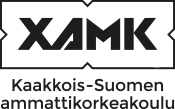Developing client-oriented methods for promotion of functional capacity (10 cr)
Code: MO00CV46-3002
General information
Enrollment
15.08.2019 - 30.08.2019
Timing
12.09.2019 - 24.04.2020
Number of ECTS credits allocated
10 op
Virtual portion
4 op
RDI portion
2 op
Mode of delivery
60 % Contact teaching, 40 % Distance learning
Unit
Department of Sports and Rehabilitation
Campus
Savonlinna Campus
Teaching languages
- Finnish
Seats
20 - 28
Degree programmes
- Master's Degree Programme in Multidisciplinary Promotion of Functional Capacity
Teachers
- Arto Pesola
- Merja Reunanen
- Eija Karjalainen
- NN2 SAKO_Savonlinna
Teacher in charge
Merja Reunanen
Groups
-
MOSA19SYMultidisciplinary Promotion of Functional Capacity, master studies
Objective
You can observe and promote your client’s functional capacity considering her/his individual resources, meanings and needs in connection with her/his working, operational and living environment.
You can ensure and empower your client and her/his meaningful others to participate in rehabilitation planning and decision-making in rehabilitation service system.
You can deepen and share your knowledge in assessment of functional capacity, agency and needs for services by applying methods of your field and taking advantage of multidisciplinary and international knowledge.
You can deepen and apply multidisciplinary knowledge and evidence-based methods for promotion of your client’s rehabilitation and welfare.
You can enhance your client’s every-day activities by taking advantage of her/his social network and peers.
You can evaluate, develop and innovate your working methods in client-oriented guidance and work practice.
Content
How do you identify your client’s life situation, expectations and needs?
How do you empower your client and her/his meaningful others to assess her/his individual resources, functional and working abilities and service needs?
How do you strengthen your client’s role and motivation as a participant in the various stages of rehabilitation process and in different environments?
How do you ensure multidisciplinary collaboration to support individual rehabilitation process?
How do you enhance and innovate client-oriented rehabilitation planning and service coordination / service supervision?
How do you apply and innovate the use of evidence-based and multidisciplinary knowledge based methods at the interfaces of rehabilitation service system?
How do you take advantage of nature, culture and art-oriented methods in rehabilitation?
How do you develop and innovate your own expertise and work practice using multidisciplinary approach?
Evaluation scale
1-5
Assessment criteria, satisfactory (1-2)
You can
a. find, study, produce and evaluate data comprehensively in their field of expertise.
b. solve problems in research, development and innovation
c. evaluate and manage operations involving individuals and teams.
d. be responsible for operations and develop them.
e. use different strategic approaches in management.
f. work in the expert duties of their professional field or as entrepreneurs
g.communicate accurately both in spoken and written native language and use foreign language data.
Assessment criteria, good (3-4)
You can
a. find, study, produce and evaluate critically multidisciplinary data in their field of expertise.
b. solve demanding problems in research, development and innovation
c. evaluate and manage independently operations involving individuals and teams.
d. be responsible for operations and develop them independently.
e. evaluate different strategic approaches and justify their use in terms of management and development.
f. work independently in the expert duties of their professional field or as entrepreneurs.
g. communicate proficiently and systematically in their spoken and written native language and in one foreign language.
Assessment criteria, excellent (5)
You can
a. evaluate and make critical use of multidisciplinary data in their field of expertise by producing new points of view.
b. solve creatively complex problems in research, development and innovation
c. evaluate and manage independently and successfully operations involving individuals and teams.
d. be responsible for operations and develop them independently and systematically
e. use new strategic approaches as management tools in complex and unfamiliar situations.
f. work independently in demanding expert duties of their professional field or as entrepreneurs
g. communicate and interact in demanding international contexts of their field of expertise.
